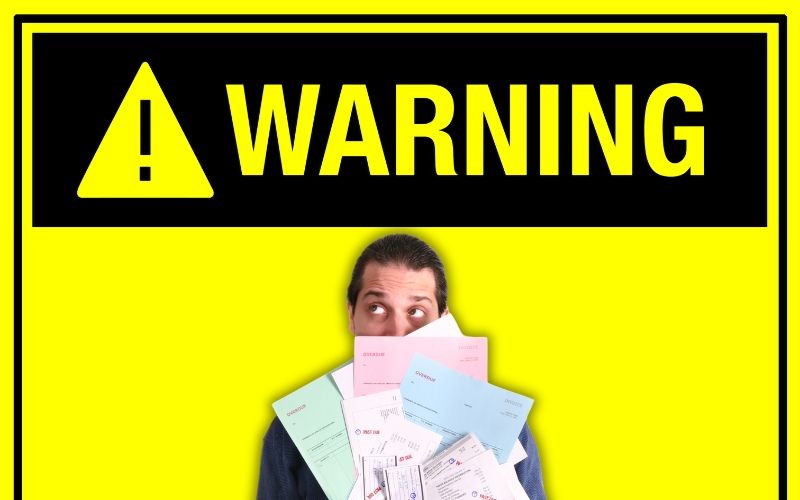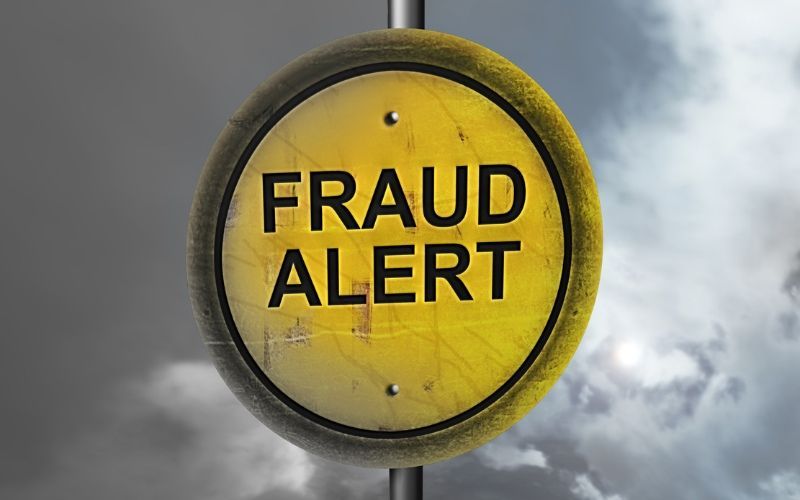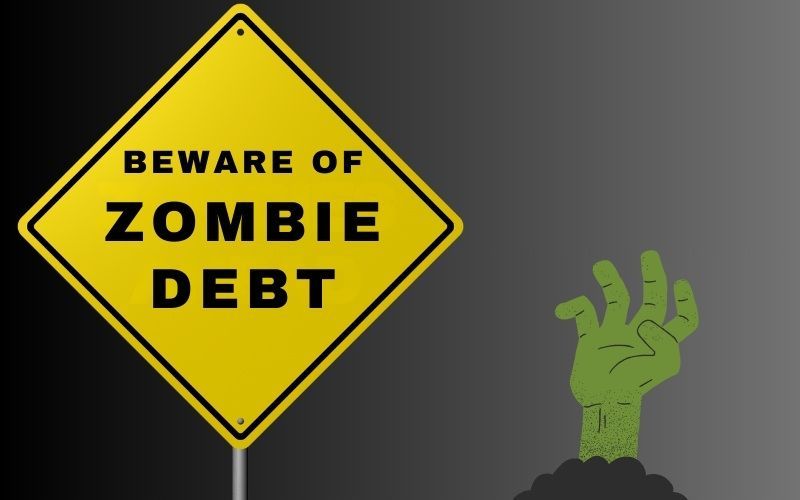How To Raise Your Credit Score 100 Points Overnight
Last Updated: April 1, 2024
Improving Your Credit Score
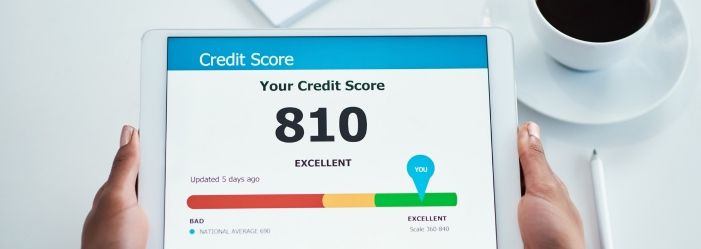
Disclaimer: We are not qualified legal or tax professionals and are not giving advice. Always speak with a qualified professional before making any legal or financial decisions.
Pacific Debt Relief is not a credit repair organization nor does our program aim to improve your credit score. The information below is for educational purposes to help consumers make informed decisions as it relates to credit and debt.
Improving your credit score can feel like a daunting task, especially if you're looking to make significant gains quickly. However, with the right strategies, it's possible to see a notable improvement in your credit score, potentially raising it by 100 points.
This guide will walk you through practical steps to boost your credit score effectively and efficiently. Whether you're preparing for a major purchase or simply aiming to better your financial health, these tips will help pave the way towards achieving a higher credit score.
Let's dive into how you can start this transformative journey today.
If you're ready to talk now, skip the article and click here for a free consultation with our debt specialist.
Credit Bureaus
There are three main credit bureaus and about 400 smaller consumer reporting companies. We will focus on the big three credit bureaus and how to work with them. The procedure will be similar to the others.
The big three credit bureaus are
TransUnion,
Equifax, and
Experian. Creditors report your financial behavior including on-time payments and any missed payments to a credit bureau. This becomes your credit history.
Your credit history is analyzed with an algorithm produced by either FICO score or VantageScore. This generates your credit score.
Your credit scores will be slightly different among the three major credit bureaus. Not all creditors report to all three and Equifax does not take into account your employer or employment history.
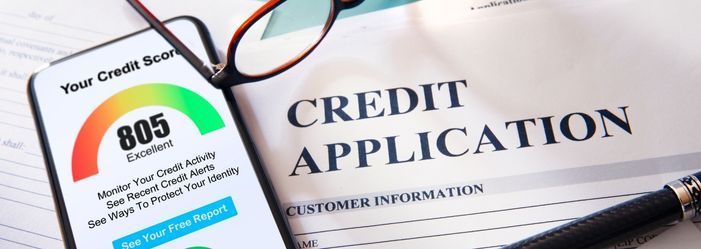
What Goes into Your Credit History
Credit history is the record of your borrowing and repayment activity. It records three categories: the number of credit cards and any personal loan; the number of on-time or late payments, and how long you have had the loans and if they are in good standing.
In general, all bills are reported to one or all credit bureaus. These include credit cards, installment loans, mortgages, utility bills, and auto loans. The creditor will report if you pay your bills on time, have late payments, and have any other issues with the loan account.
Some landlords report rent payments. If they do not, you can sign up for a service that reports rent (and utility payments) to one of the bureaus. Most of them charge a monthly or annual fee, but having your rent and utility payments reported can add to your credit history.
All of this information is then scored.
Scoring Credit History
The first concept is that your credit score is not a measure of how well you are doing financially. It is a measure of how responsible you are and how much you can be trusted to repay your debts. A good credit score means a good interest rate.
Five factors go into an overall credit score. These are payment history, debt-to-credit ratio, age of credit, credit mix, and new credit.
Payment History
Payment history is the single most important factor in your credit score and can tank your credit score quickly or raise your credit score fast. Thirty-five percent of your score is based on this factor and it can make or break your score. When paying bills, every late payment or skipped payment you make dings your credit score.
You can always request that dates for monthly payments be moved to a more convenient time for you. The company may or may not do it, but it is certainly worth asking. You may also want to consider automatic payments.
As soon as you start making consistent payments, you should start to see small improvements in your credit score.
Debt to Credit Ratio
Also, called the credit utilization ratio, the debt-to-credit ratio is the second heaviest weight factor at 30% of your score. This ratio looks are how much of your available credit you are using. For instance, if you have an available credit limit of $10,000 on your credit card and you owe $3,000, your credit utilization ratio is 30% (3,000/10,000 x 100).
A good credit utilization ratio is 30% or less. Focus on paying down revolving balances to improve your credit utilization ratio.
"Credit repair" companies use this credit utilization ratio component to "raise your credit scores quickly" by requesting that revolving loan companies like credit cards raise credit limits. You can ask for a credit limit increase by yourself for free - just remember NOT to use the increased balance and get into more debt.
Age of Credit
Age of credit weights 15%. This looks at how long you have had your debts. The older, the better. Building credit takes time. If you choose not to use a credit card any longer, don't close it. Having it on your report will help age it and it will improve your credit utilization ratio.
Credit Mix
Credit mix looks at what types of debt you have and weighs this at 10%. Creditors like to see a mix of loans and credit cards.
New Credit
The final scoring point takes into account how many times you apply for credit and weigh in at 10%. When you apply for credit, the creditor requests a full credit inquiry. Even if you end up not using the new debt or getting the loan, your credit score takes a hit.
This is because applying for credit means you are in some sort of financial difficulty.
Next, we will discuss the steps to improve your credit scores.
What are Good Credit Scores?
Depending on whether the credit bureau uses FICO or VantageScore the scores vary slightly. In general, a score above 670 is considered good. The higher your credit score, the better terms you will get on any loans or credit cards.
FICO score:
- Exceptional credit: 800-850
- Very Good credit: 740-799
- Good credit: 670-739
- Fair credit: 580-669
- Poor credit: 300-579
VantageScores:
- Excellent credit: 781 to 850
- Good credit: 661 to 780
- Fair credit: 601 to 660
- Poor credit: 500 to 600
- Very poor credit: 300 to 499
Check Your Credit Report
If you have not, you should immediately check your credit history and credit reports. You are legally entitled to request one free credit report a year from each of the big three major credit bureaus. You can contact the company directly, use Credit Karma, or visit
Annual the Credit Report.
Once you get a copy of your credit reports, go over them very carefully. It's not uncommon to see variations in scores between bureaus. For insights on
credit score discrepancies, it's worth a read. Look for the following:
- Correct name
- Correct address
- Correct Employer
- Lines of credit that you have or have not authorized
- Credit cards that you have or have not authorized
- Personal loans that you have or have not authorized
- Aged out debt issues like bankruptcy (generally up to ten years), collections (generally up to seven years)
- Aged out judgments based on your state’s statute of limitations
If you see any errors, fraud, wrong address, or other incorrect details, contact the credit reporting agency immediately. One-fourth of all consumers have errors on their credit reports that affect their credit scores. The contact information is as follows:
Equifax credit report
- Phone: 866-349-5191
- Mail: P.O. Box 105788, Atlanta, GA 30348
Experian credit report
- Phone: 888-EXPERIAN (397-3742)
- Mail: P.O. Box 9554, Allen, TX 75013
TransUnion credit report
- Phone: 833-395-6938
- Mail: P.O. Box 2000, Chester, PA 19016
Send copies of any documentation to the credit bureaus. You may need to be persistent and follow up. Once they have fixed any errors, request another copy with your credit score update.
This may improve your credit score immediately!
Now, set up a schedule to check your credit report. For instance, you may request one from TransUnion in January, one from Equifax in May, and one from Experian in September, then repeat in January. If you are a victim of proven identity theft, a credit card issuer and credit bureau may offer some financial protection.
Credit repair companies use this method to "repair" your credit quickly. You can do it too and for free.
Tips to Improve Your Credit Scores
- Run a credit check on yourself
- Paying bills on time matters
- Reduce balances on revolving accounts
- Have rent or utilities reported to the credit bureaus.
- Don't apply for a new credit line
- Use cash for big purchases instead of getting a loan for something smaller than a car
- Pay off past-due accounts
- Make a credit card payment twice a month to pay down your balance.
Credit Card Accounts
Credit card accounts and account balances represent a huge debt for most Americans, with outstanding balances averaging over $5000 per person. Credit accounts are great tools, but they are extremely easy to overuse. If you have a credit account, focus on paying it down as quickly as you can and then not using it.
Try not to close an old credit account but focus on not using a credit card account to make up for shortcomings in income or for non-essential purchases. Don't apply for too many credit cards or use all your available credit as this harms your credit score. If you tend to run up credit card debt using a traditional credit card, you may want to look into a secured credit card.
With a secured credit card, you can only charge as much as you have on the credit card to secure it. For instance, if you have a $1000 secured card, you can only charge up to $1000. It is a good way to build credit. Since the card is secured, you may get the credit card company to offer an excellent interest rate.
Raising Your Credit Score 100 Points Overnight: Is It Possible?
Understanding the urgency of improving credit scores, many people wonder if it's possible to raise their credit score by 100 points overnight. While the concept of dramatically increasing your credit score in such a short time frame is appealing, it's important to note that improving your credit score is typically a process that requires time and effort.
That being said, there are actions you can take that may result in significant improvement to your credit score. Here are a few steps you can consider:
- Check Your Credit Report for Errors: Mistakes on your credit report could be bringing down your score. Review your report thoroughly and dispute any inaccuracies you find.
- Pay Down Your Balances: Reducing the amount of debt you owe is a great way to improve your credit score. Prioritize paying down debts that are closest to their credit limit.
- Negotiate with Creditors: If you have any overdue debts, consider negotiating with your creditors. Some might be willing to accept a lower amount and/or remove the negative mark from your credit report.
- Become an Authorized User: If a family member or close friend has a good credit history and adds you as an authorized user on their credit card, this can potentially increase your score.
While these strategies can help, it's important to remember that changes to your credit score don't happen overnight. Most changes will reflect in your credit score within 30 to 45 days, but the impact can vary based on your individual credit history and the specific steps you take. Consistency and responsible financial behavior are key to long-term credit score improvement.
Credit Score Myths vs Facts
Is checking your credit report harmful? Will closing old accounts help? Get the real truth behind some common credit myths.
- Myth: Checking my credit score hurts it.
- Fact: Performing a soft credit check to view your credit report as a consumer has no impact on your score. When you check your report, it counts as a soft inquiry that isn't visible to lenders and doesn't affect your score. On the other hand, hard inquiries made when lenders check your report when you apply for credit do slightly ding your score. But you can monitor your score worry-free by obtaining your free annual credit reports that all consumers are entitled to from AnnualCreditReport.com.
- Myth: I should close old credit card accounts I don't use.
- Fact: It seems it should help - but closed accounts lower your total available credit and the length of your credit history, both of which make a big difference in scores. As long as there are no annual fees, keep old accounts open.
Lowering Credit Utilization Ratio
This ratio compares your total outstanding balances to your total credit limits on revolving accounts like credit cards. Experts recommend keeping this ratio below 30%. Here's a detailed example of how lowering it can raise your credit score:
Say you have a $2,000 balance on a card with a $4,000 limit. That's a 50% credit utilization ratio. By calling the card issuer to request an increase to a $6,000 limit, while keeping the $2,000 balance unchanged, you've now lowered your ratio to 33% simply by having more available credit.
Even better would be increasing the limit to $6,000 and paying the balance down to $1,200. Now the ratio is an excellent 20% - and your score gets a nice boost!
Quick Win Credit Score Boost Tips
Along with the major score improvement strategies discussed, you can give your credit a quick surge with these simple quick-fix tips:
- Become an authorized user on someone else’s well-managed credit card. Their good payment history will be added to your reports.
- Correct any errors you find reported to agencies by submitting documentation. Also, update personal info like income.
- Pay balances way down before statement closing dates. Even less than 10% of limits have a major impact.
FAQs
-
How long does negative information stay on my credit report?
Most negative credit information stays on your report for 7 years, including late payments, collections accounts, and other delinquencies. Bankruptcies stay for 10 years.
-
Are there advantages to checking all three credit reports?
Yes! Make sure to check your reports from Equifax, Experian, and TransUnion each year. Information can vary between them, and checking all three gives you the full picture.
-
Can I rebuild credit without a credit card?
Yes, you can rebuild credit through on-time payments on installment loans like auto loans, personal loans, or making utility and cell phone payments. Using secured cards tied to savings is also an option.
-
How many credit cards should I have to improve my score?
Most experts recommend having at least 3 open revolving credit accounts as this shows you can manage multiple lines. But too many cards can lower your score too, aim for about 3-4 cards.
-
Will loan payments help my credit score?
Yes! All on-time loan payments like mortgage, auto, and student loans help by showing you reliably make payments over time. Paying down balances also helps lower utilization.
-
How do I recover from bad credit due to medical bills?
Unpaid medical bills can significantly lower scores. Check reports and negotiate payment plans on bills before they get to collections status to reduce score damage.
A Final Word About Increasing Your Credit Score
If you follow these suggestions, you should see improvements within a couple of months. You may not boost your credit score overnight or raise it by 200 points in 30 days, but you should see some positive changes. Occasionally, you will even see big jumps.
The short version is to pay on time, check your credit report annually, and use credit carefully and wisely. You should see improvements quickly and maintain your good credit score once you get where you want it to be.
Pacific Debt Relief
If you'd like some information on debt settlement or have more than $10,000 in credit card debt that you can't pay, contact Pacific Debt, Inc. We may be able to help you become debt-free in 2 to 4 years. While your credit score may take a small hit when working with us, paying your bills and improving your credit utilization rate will help you build credit in the future.
Pacific Debt Relief is not a credit repair organization nor does our program aim to improve your credit score. The information below is for educational purposes to help consumers make informed decisions as it relates to credit and debt.
*Disclaimer: Pacific Debt Relief explicitly states that it is not a credit repair organization, and its program does not aim to improve individuals' credit scores. The information provided here is intended solely for educational purposes, aiding consumers in making informed decisions regarding credit and debt matters. The content does not constitute legal or financial advice. Pacific Debt Relief strongly advises individuals to seek the counsel of qualified professionals before undertaking any legal or financial actions.
Are you ready for debt relief help now?
Get Free Consultation- Accredited by Better Business Bureau with BBB A+ rating(4.93 rating and 1542 reviews)
- US News and World Reports and Bankrate ranked Pacific Debt as one of “The Best Debt Settlement Companies of 2020”
- 6.9 star rating by BestCompany.com (over 2379 client reviews)
- 4.8 star rating by TrustPilot based (over 1477 verified consumer reviews)
- ConsumerAffairs.com Accredited (over 543 verified reviews with an average rating of 5 stars)
- A Top 10 Rated Company by TopTenReviews.com , ConsumersAdvocate.com and Top10debtconsolidation.com
- 4.7 star rating by Google (220 client reviews)
- 100% rating by SuperMoney (9 client reviews)

Pacific Debt Relief
750 B Street Suite 1700
San Diego, CA 92101
Hours of Operation
Mon-Thurs: 6am - 7pm PST
Friday: 6am - 4:30pm PST
Saturday: 7:30am - 4:30pm PST
Clients
Phone: (877) 722-3328
Fax: (619) 238-6709
Email: cs@pacificdebt.com
Non-Clients
Phone: (833) 865-2028
Fax: (619) 238-6709
Email: inquiries@pacificdebt.com
"To eliminate debt one household at a time, while placing people first." - Pacific Debt
© 2024 Pacific Debt Inc. dba Pacific Debt Relief, all rights reserved.
California Privacy Policy |  Do Not Sell My Personal Information
Do Not Sell My Personal Information
GLBA Privacy Notice | CDRI Accredited Member
*We do not discriminate on the basis of race, color, religion, sex, marital status, national origin or ancestry.
*Please note that all calls with the company may be recorded or monitored for quality assurance and training purposes.
*Your visit to our website may be monitored and recorded from essential 3rd party scripts.
*Clients who make all their monthly program deposits pay approximately 50% of their enrolled balance before fees, or 65% to 85% including fees, over 24 to 48 months (some programs lengths can go higher). Not all clients are able to complete our program for various reasons, including their ability to save sufficient funds. Our estimates are based on prior results, which will vary depending on your specific circumstances. We do not guarantee that your debts will be resolved for a specific amount or percentage or within a specific period of time. We do not assume your debts, make monthly payments to creditors or provide tax, bankruptcy, accounting or legal advice or credit repair services. Pacific Debt is not a credit repair firm nor do we offer credit repair services. Our service is not available in all states and our fees may vary from state to state. Please contact a tax professional to discuss potential tax consequences of less than full balance debt resolution. Read and understand all program materials prior to enrollment. The use of debt settlement services will likely adversely affect your creditworthiness, may result in you being subject to collections or being sued by creditors or collectors and may increase the outstanding balances of your enrolled accounts due to the accrual of fees and interest. However, negotiated settlements we obtain on your behalf resolve the entire account, including all accrued fees and interest. C.P.D. Reg. No. T.S. 12-03825.







